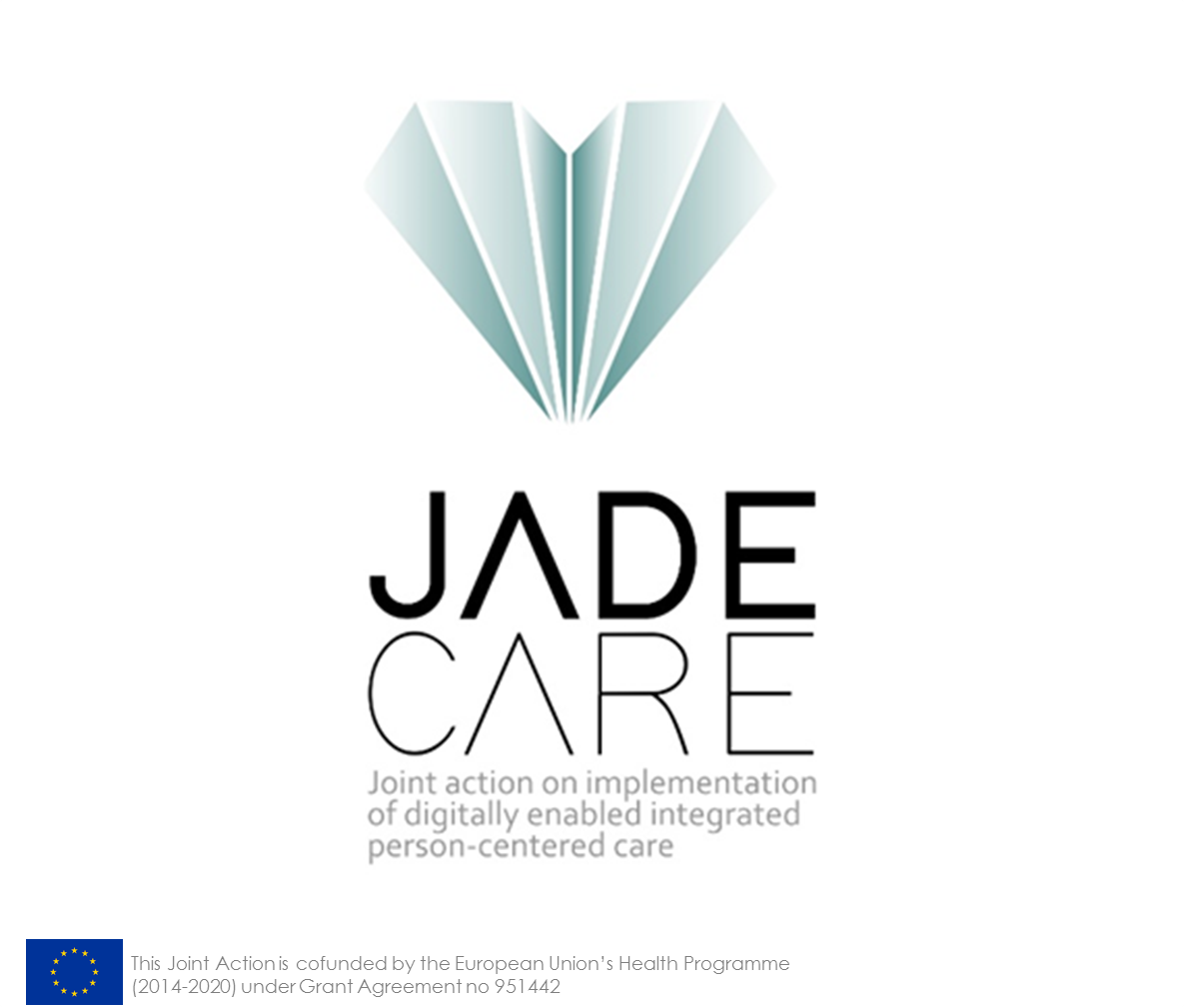From 3 to 5 November, the kick off meeting of JADECARE Joint Action was held telematically. María Aguirre, Director of Health Research and Innovation of the Department of Health, welcomed the attendees of the event together with Pilar Aparicio, Director General Directorate of Public Health of the Ministry of Health, and Donata Meroni, Head of the Health and Food Safety Unit of CHAFEA. The event was attended by more than 190 representatives from various Ministries of Health and European organisations and delegates from the CHAFEA Agency and DGSANTE of the European Commission.
JADECARE Joint Action, financed by the European Union’s Third Health Programme (2014-2020), will last three years and will be coordinated at European and national level by the Kronikgune Institute for Health Services Research. The Joint Actions, co-financed by the Member States and the European Commission, aim to promote collaboration between EU Member States.
This project involves 48 organisations from 17 European countries. The Ministry of Health nominated the Kronikgune Institute in 2019 as the beneficiary and sole signatory in this Joint Action at Spanish level. The organisations affiliated to the Kronikgune Institute are AQuAS and IDIBAPS, from Catalonia, the Andalusian Regional Ministry of Health and Families (CSFJA), the Castilla y León Regional Health Management (SACYL), the Cantabrian Health Service (SCS) and the Murcia Health Service.
JADECARE addresses the implementation of comprehensive and person-centred care through digital solutions. In the Joint Action it aims to transfer four good practices, to 23 European health contexts. The four practices were selected by the Member States at the “Steering Group on Promotion and Prevention” held in February 2019 following their presentation at the “Marketplace on integrated health care”, organised by the European Commission in December 2018 in Ispra, Italy. The Basque Country Good Practice “Basque health strategy on ageing and chronicity: integrated care” will be transferred to other health contexts together with the practices “Catalan open innovation centre on ICT-supported integrated care services for chronic patients” from Catalonia; “The OptiMedis model – population-based integrated care” from Germany, and finally the “Digital roadmap towards an integrated health care sector” from the Southern Region of Denmark.
By transferring these four practices, JADECARE proposes to strengthen the capacity of health authorities to successfully address all important aspects of the transformation of the health system towards digitally enabled, integrated and people-centred care.
The Basque Country’s Good Practice “Basque health strategy on ageing and chronicity” presents the specific health strategies implemented to deal with ageing and chronicity over the last ten years. The Basque Country has implemented integrated care in the system with the creation of Integrated Healthcare Organisations OSIs. Furthermore, the system has worked on providing a population-based approach to care through preventive interventions but also with risk stratification and care plans based on the needs of our citizens. Finally, Osakidetza places special emphasis on continuity of care and patient empowerment and self-management. The Basque Country’s eHealth strategy includes multiple tools and digital platforms launched in recent years. Examples of this are the Electronic Health REcord , E-rezeta, the Health Folder, telemedicine for specific patients, eHealth Centre, School of Health or applications available to citizens.






